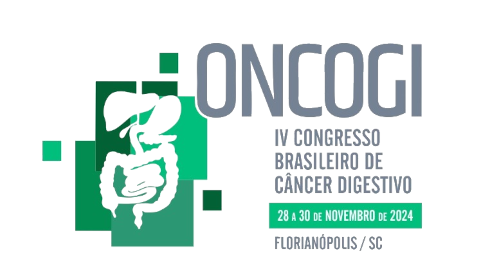Dados do Trabalho
Título
Current Trends in Digestive Oncology Research in Latin America: A Comprehensive Bibliometric Analysis
Introdução
Digestive system cancers have significant global health impacts. However, Latin American countries (LATAM) contribute a relatively small percentage of global digestive oncology research.
Objetivo
To assess the current state of scientific production in LATAM contributing to digestive system cancer research.
Método
A bibliometric analysis was conducted using the SCOPUS database. Articles focusing on medical research of digestive system cancers were selected using the following advanced search: AFFILCOUNTRY("argentina" OR "bolivia" OR "brazil" OR "chile" OR [...]) AND TITLE-ABS-KEY("colorectal cancer" OR "gastric cancer" OR "hepatocellular carcinoma" OR "pancreatic cancer" OR [...]) AND SUBJAREA(medi) AND LIMIT-TO(DOCTYPE, "ar"). The analysis compared the research output and institutional contributions from these countries, analyzing metrics such as publication output, citations, institutional impact, journal frequency, and open-access trends.
Resultados
The research identified 9058 articles, representing 2.07% of global research in this field. Brazil (2765), Mexico (766), Chile (628), Argentina (510), and Colombia (318) emerged as the most productive countries, with Brazil also leading in citations (37449), while Mexico (9045) and Argentina (7503) took the second and third place, respectively. Notably, Argentina demonstrated the highest average citations per article (14.71), with Brazil being second (13.54), followed by Mexico (11.81). The most impactful institutions in terms of collaborations included Universidade de São Paulo (USP), Pontificia Universidad Católica de Chile (PUC), Instituto Nacional de Cancerología (INCan), Instituto Nacional de Câncer (INCA), and Universidad de La Frontera (Chile). The most frequent publication outlets were Arquivos de Gastroenterologia (253), Revista Medica de Chile (156), and Acta Gastroenterologica Latinoamericana (149). Open-access articles accounted for 54.5% of the total output. A comparison between the last two decades revealed a statistically significant increase in publication volume (p < 0.0001), with annual averages rising from 254.9 to 529.5 articles. The most prevalent research keywords were "colorectal cancer", "gastric cancer", "cancer", "hepatocellular carcinoma", and "Helicobacter pylori".
Conclusão
Brazil, Mexico, and Argentina lead LATAM digestive cancer research, with institutions like USP and PUC Chile playing key roles. Increased open-access and research output in recent years underscore the growing impact of LATAM in this field.
Área
Outros e Miscelânea
Autores
GUILHERME MELO SILVA, Mariana Lee Han, Maria Antônia Dal Molin Werlang, Cristine Vanz Borges
